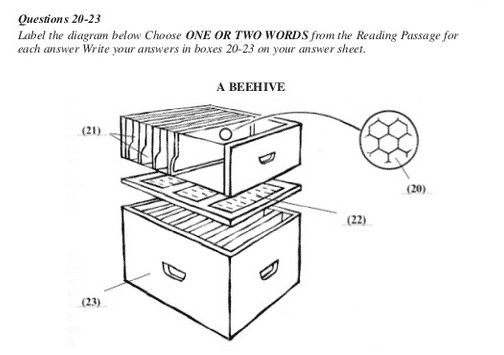Trish Regan: What is your current assessment of where the trade talks actually are? Do you believe a deal is possible?
翠西·里根:你觉得中美贸易谈判现在处在一个什么阶段?你是否相信我们会达成一个协议?
Liu Xin: I don’t have any insider information. What I know is the talks were not very successful last time, they were going on in the United States and now I think both sides are considering where to go next.
But I think the Chinese government has made its position very clear, that unless the United States treat the Chinese government, treat the Chinese negotiating team with respect and show the willingness to talk without using outside pressure, there is high possibility that there could be a productive trade deal. Otherwise we might be facing a prolonged period of problems for both sides.
刘欣:我没有什么内幕消息,只知道上一轮谈判不是很顺利,当时是在美国谈的。现在双方都在考虑未来前进的方向。
中国政府已经把立场说得很清楚了,只要美方用公正的态度对待中国政府和中方的谈判团队,拿出谈判的诚意,不施加外部压力,还是很有希望达成一个好的结果的;否则双方都会面临一个长期的僵局。
Trish Regan: I would stress that trade wars are never good. They‘re not good for anyone. So I want to believe that something can get done (LX: Agreed)。 These are certainly challenging times, I realise there’s a lot of rhetoric out there. But let me turn to one of the biggest issues and that‘s intellectual property rights. Fundamentally, I think we can all agree it’s never right to take something that‘s not yours. And yet in going through so many of these cases, cases that the independent World Trade Organisation, the WTO, that China is a member of, as well as the DOJ and FBI cases – you can actually see some of them on the screen right now – there’s evidence there that China has stolen enormous amounts of intellectual property. Hundreds of billions of dollars’ worth. That‘s a lot of money.
But I guess we shouldn’t really care if it‘s hundreds of billions of dollars or just 50 cents. How do American businesses operate in China if they’re at risk for having their property, their ideas, their hard work stolen?
翠西·里根:我想强调的是,贸易战从来都不是好事,对谁都没有任何好处。所以我愿意相信我们是会达成一些成果的(刘欣:同意)。这无疑是一个充满挑战的时代,我也看到有很多的言论。那让我来提问一个其中最主要的问题,就是知识产权问题。从根本上说,我们都认为,如果不是你的东西,你拿走是不对的。但是我们看到有很多这样的案例,比如像WTO这样独立的国际组织,中国也是WTO的成员,还有美国司法部和联邦调查局,都公布过此类案例,你现在可以从我们屏幕上面看到列出了其中一些这样的案例。这些都是证据,显示中国窃取了美国大量的知识产权,价值数千亿美元。数额巨大。
但我们应该真正关心的不是上亿还是说几毛钱,而是:如果在中国做生意的美国企业面临着它们的知识产权、创意、辛勤劳动的成果被窃取的风险,它们还如何在中国做生意?
Liu Xin: You have to ask American businesses whether they wanted to come to China, whether they find coming to China and cooperating with Chinese businesses (has not been) profitable or not, and they will tell you their answers. As far as I understand many American companies have been established in China, they’re very profitable and the great majority of them I believe plan to continue to invest in China and explore the Chinese market. U.S. President Donald Trump’s tariff makes it a little bit more difficult, makes the future a little uncertain.
I do not deny that there are IP infringements, there are copyright issues or there are piracy or even theft of commercial secrets. I think that is something that has to be dealt with, and I think the Chinese government, the Chinese people and me as an individual, I think there’s a consensus because without the protection of IP rights, nobody, no country, no individual can be stronger, can develop itself. I think that is a very clear consensus among Chinese society.
And of course there are cases where individuals, where companies go and steal, and I think that’s a common practice probably in every part of the world, and there are companies in the United States who sue each other all the time over infringement on IP rights. You can’t say, simply because these cases are happening, that America is stealing, or China is stealing, or the Chinese people are stealing. And basically that’s the reason why I wrote that rebuttal, because that kind of blanket statement is really not helpful, really not helpful.
刘欣:你得问美国的企业了,它们想不想来中国,它们在中国做生意、与中国企业合作是否有利可图,美国企业会告诉你他们的答案。据我所知,大部分在中国做生意的美国企业的利润都是非常丰厚的,绝大部分决定继续在中国投资,不断开拓中国市场。但是美国总统特朗普的关税政策使这种计划变得困难,也让未来变得更加不确定。
我不否认有侵犯知识产权的情况,有版权问题、盗版问题甚至商业机密被窃取的问题。我认为这是必须要处理的问题,而中国政府、中国人民,包括我自己作为一个个体,都有一个共识,就是:没有知识产权的保护,任何一个国家、任何一个人,都无法发展壮大。所以说这个是我们全社会的一个共识。
#p#分页标题#e#当然,是有一些个人或者公司去窃取的情况,这个我觉得也不仅仅在中国,在全世界都很普遍,美国公司也有这样的情况,因为知识产权侵权而打官司。你不能仅仅因为这些案例就说美国在盗窃,或者中国、中国人民在盗窃。这也是我为什么之前做出那样的回应,因为这样笼统的指责无益于问题的解决。
Trish Regan: It‘s not just a statement, it’s multiple reports, including evidence from the WTO. But let me ask you about Huawei because that‘s certainly in the headlines now…
I think we can all agree that if you’re going to do business with someone, it has to be based on trust. You don‘t want anyone stealing your valuable information that you’ve spent decades working on. Anyway, China passed a law in 2017 requiring tech companies to work with the military and the government, so it‘s not just individual companies that might be getting access to this technology, it’s the government itself, which is an interesting nuance. But I get that China is upset that Huawei is not being welcomed into the US markets, I totally get it, so let me just ask you this. It’s an interesting way to think about it. What if we said, ‘hey sure, Huawei, come on in, but here’s the deal, you must share all those incredible technological advances that you‘ve been working on, you’ve got to share it with us‘, would that be ok?
翠西·里根:这不是我的说辞,而是有很多相关报告的,包括WTO也有这样的证据。我们现在来谈谈华为的问题,这是一个热点话题。
我们其实都会同意,如果我们想跟别人做生意,必须基于互信。你不希望在做生意的时候,别人把你研究了几十年的很有价值的东西偷走。中国从2017年开始授权科技企业与军方和政府合作(译注:翠西此处应该是指中央军民融合发展委员会成立于2017年1月22日),这就意味着不仅只是一个公司行为,而是政府行为了,这两者之间是有稍许区别的。但据我所知,华为不能进入美国市场,中国觉得不太高兴,这我也可以理解。但我换种方式来问吧,这么问或许更有趣,比如 “华为,来我们美国市场吧。但我们先约法三章:你必须跟我们分享你们所取得的那些巨大的科技成就”,这种方式,你觉得可以吗? 南方财富网微信号:南方财富网
共4页:
-
相关文章
- [财经]中美女主播约辩完整版!中英文对照辩论内容全文(3)
- 中国古代十大富豪:范蠡一举夺冠,吕不韦无缘前五
- 世界上最白的人:维纳斯·巴勒莫(患有白化病)
- 世界上最小的婴儿:仅重280克,身长24厘米
- 世界上最可怕的三个小孩,最小的仅有8岁就连环杀人
- 新手演讲的注意事项介绍
- 2030年后沿海城市会被淹没吗
- 2022年国庆节为什么要连着上七天班
- 2022年国庆节可以出省旅游吗
- 2022年几月份就转凉了
德迅网 » [财经]中美女主播约辩完整版!中英文对照辩论内容全文(2)
免责声明:本文由网友提供互联网分享,不代表本网的观点和立场;如有侵权请联系删除。

 英文信件结尾处署名写在左边还是右边
英文信件结尾处署名写在左边还是右边 小学达到英语专四只能算“标配”?谁在助推
小学达到英语专四只能算“标配”?谁在助推 英语句子的连词(英语三个句子并列用什么连
英语句子的连词(英语三个句子并列用什么连 雅思阅读到底考你什么?
雅思阅读到底考你什么? 雅思阅读不同题型答题技巧
雅思阅读不同题型答题技巧